Celebrating 100 Years!



Letter from the President
God for the Past - Trusting God for the Future
History: Great is Thy Faithfulness Sheila S. Lovell
History: Alumni Stories Dr. Dean Cook



Resilience: It’s All Latin to Me: A Celebration of Resilience and a Call to Continuation The Most Rev. Emilio Alvarez, Ph.D. Associate Provost of Lifelong Learning
Resilience: Alumni Stories Jacob DeShazer
Innovation: A Bright Future Built on A Century of Innovation Dr. Danny Román-Gloró Director of the Asbury Latino Center
Innovation: Alumni Stories Rev. Jessica LaGrone
Global: Alumni Impact Around the World Tammy Cessna Director of Alumni and Church Relations


Global: Alumni Stories Ricardo Gomez

Upcoming Centennial Celebration Event
From the Archives: Aunt Bettie Morrison On Success This article originally appeared in the Herald, February 12, 1936 26. The Legend of the Ginkgo Trees
Historical Timeline of Asbury Seminary


Photos from the Centennial Gala
Asbury Theological Seminary is a religious, not-for-profit, educational institution, which has long enjoyed the benefit of estate stewardship of many friends. If you are considering a bequest, please use our full legal name and address: Asbury Theological Seminary, 204 N. Lexington Avenue, Wilmore, KY 40390-1199 or call 800.2ASBURY for specific information. Find this 2022 Fall/Winter Herald, previous editions of The Asbury Herald, and other Asbury Seminary resources online at asburyseminary.edu or e-mail communications.office@asburyseminary.edu
Asbury Theological Seminary is celebrating our Cen tennial year! When H. C. Morrison stepped out in faith to start this ministry he had a chorus of naysayers who predicted that we would never thrive. One now infamous letter arrived on the very month he founded Asbury and admonished Morrison to not start this new venture. The letter said, “you cannot survive, and your school cannot succeed.” Well, here we are 100 years later! We have not only succeeded, but we have thrived to become the largest Wesleyan seminary in the world! We have now sent out 13,345 graduates to “spread scriptural holiness throughout the world.” From our humble beginning with only a handful of students one cannot help but be amazed that our first real graduating class (class of 1927) had four gradu ates: Wan-Yu Chang from China, Ellen Francis Keller, Raymond Newton, and Kenichi Tsuchiya from Japan. Our first graduating class had men and women from the US and from the ends of the earth. It is a powerful testimony that from the start we had a global vision undergirded by our founding mission statement: “The whole Bible for the whole World.”
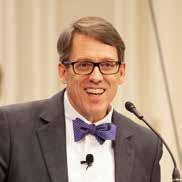
We kicked off our Centennial year with our annual convocation, the dedication of our new alumni center and a “gala” gathering of over 600 people who have supported and prayed for this ministry. The theme for our Centennial year is “Thanking God for the Past –Trusting God for the Future.” This theme is meant to emphasize that this ongoing, continually unfolding miracle known as Asbury is not fundamentally the story of those of us who lead, or even those who teach, or our faithful Trustees who have guided the mission of the Seminary. Rather, it is the story of God’s goodness and faithfulness to preserve this ministry and keep us true to our founding mission. This is also why we chose as our theme song for the year the beautiful song, “Great is Thy Faithfulness.” That beloved song was written by Thomas Chisholm who was brought to the Lord at a revival service held by our beloved founder, H. C. Morrison. Chisholm sought to capture the power of the gospel message by penning that glorious hymn which was written, providentially, in 1923, the same year that Asbury Seminary was founded. We want this year to be primarily a celebration of God’s faithfulness. We began by looking back and acknowledging God’s faithfulness in our first 100 years, and we are now pivoting to look forward and asking God to continue leading us into our next 100 years. We are in the process of rolling out our newest Strategic Plan, known as the Centennial Plan, which will chart our course, under God’s grace, as we move into our next 100 years.
The morning of our centennial “kick off” week, just a few hours before my opening Convocation address, I visited the grave of our founder Henry Clay Morrison who is buried in the cemetery located in Wilmore, Kentucky. I thanked God for his vision and faithfulness. I know that he shared my joy in seeing this ministry thriving 100 years after he stepped out in faith and started this work. On his grave are written the words, “He believed in, preached and professed the expe rience of entire sanctification as taught in the holy Scriptures and interpreted by John Wesley.”
It is a powerful statement which captures the theo logical heart of not only Asbury Seminary, but our entire movement. We believe in the power of the gospel not only to justify sinners, but to transform and sanctify us into living icons of his presence in the world! Asbury Seminary exists to “grow fruit on other people’s trees.” The true fruit of this ministry is not seen in Wilmore, or any of our sites now found in Colorado Springs, Tulsa, Memphis, Orlando and Tampa. The fruit of Asbury Seminary is seen in pulpits, by hospital beds, in coun seling rooms, on the mission field, in classrooms, and in dozens of other places where our graduates are now serving around the world. We firmly believe that our best days still lie ahead. Our Asbury Global platform is not only providing access to theological education around the country, but we are now offering degrees in London, England and in Bangalore, India. This is just the beginning of our truly living into our founding mission to “spread scriptural holiness throughout the world.” We don’t know for certain where God will lead us in the decades ahead. But, if we remain faithful to the biblical witness and our Wesleyan heritage, then the future is as bright as the promises of God.
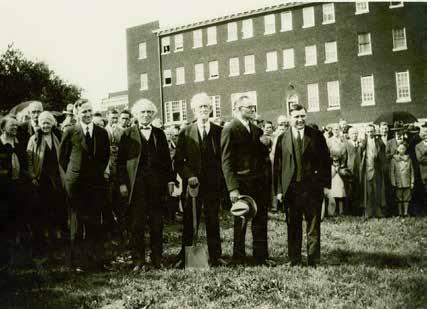
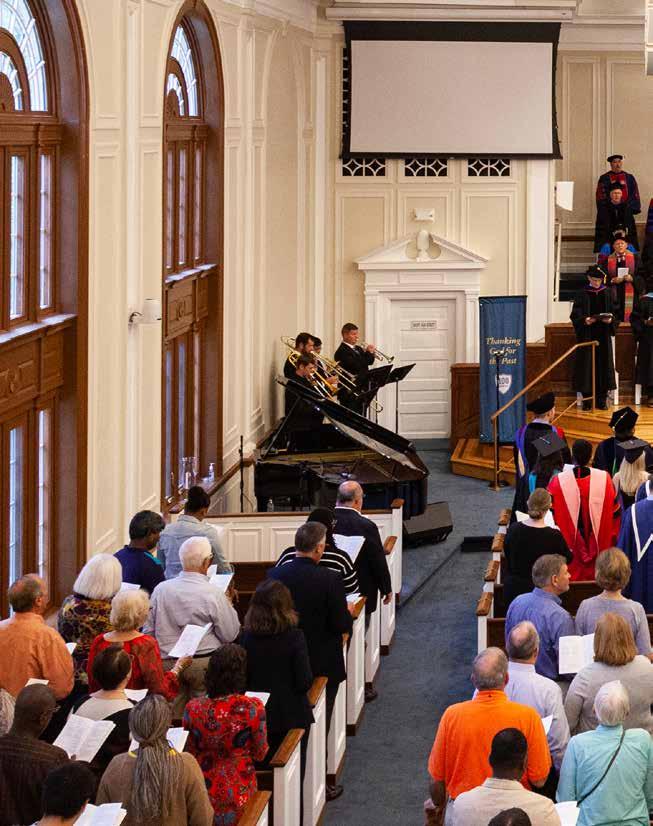
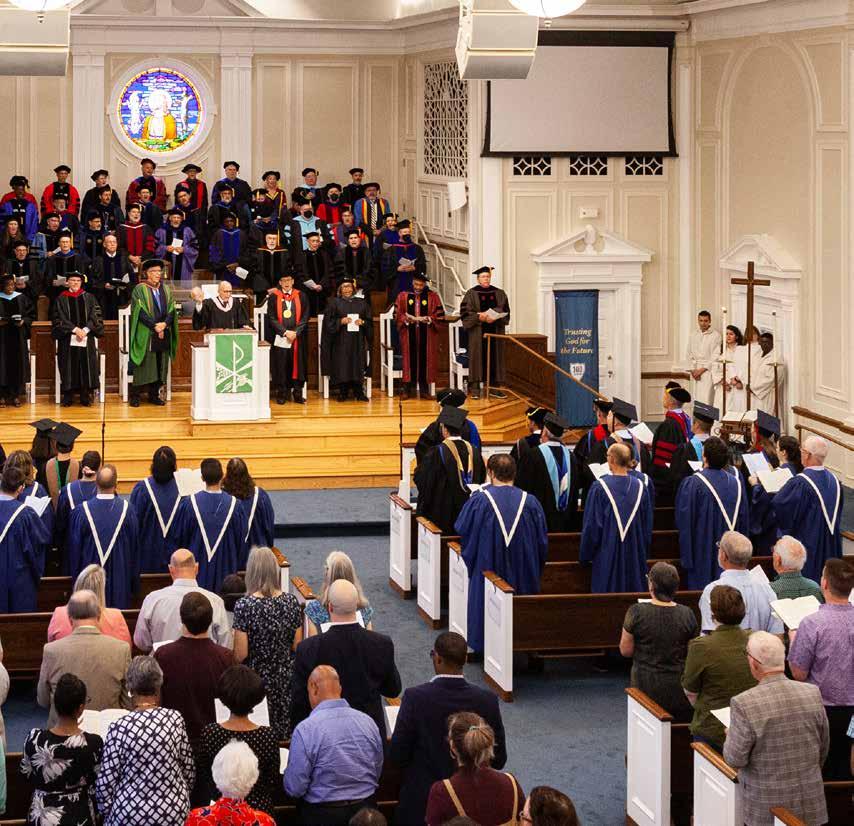
Henry Clay Morrison served for several years as a full-time Methodist evangelist. In 1893 he held a revival meeting in Franklin, Kentucky, in which a young man by the name of Thomas O. Chisholm was converted. Chisholm was a newspaperman and a poet and hymn-writer as well. Of all the over 1,200 hymns that Chisholm wrote, perhaps the most beloved is “Great is Thy Faithfulness.” He wrote it in 1923; William Marion Runyon set the words to music that same year. And it was that same year that Henry Clay Morrison founded Asbury Theological Seminary.
The theme for our Centennial Year celebrations is “Thanking God for the past; trusting God for the future.” Milestones in history give us a chance to look back over where we have been. A century of service to the Kingdom gives us a grand arc over which we can view our accomplishments – as well as our missteps. It is fitting that we give God praise for his faithfulness to and through Asbury Seminary as we review our first 100 years.
Asbury Seminary has had eight presidents: Henry Clay Morrison (1923-1942); Julian C. McPheeters (1942-1962); Frank Bateman Stanger (1962-1982); David L. McKenna (1982-1994); Maxie D. Dunnam (1994-2004); Jeffrey E. Greenway (2004-2006); J. Ellsworth Kalas (2006-2009); and Timothy C. Tennent (2009-present).

Asbury Seminary officially opened on Septem ber 16, 1923, with three students, on the campus of Asbury College (now University). For some years, the two educational institutions shared a president, Morrison, a campus, and a board of trustees. Accreditation issues necessitated the separation of the two and by 1939 the Seminary had moved across the street to its own campus. Our first building, now known as Larabee-Morris Hall, encompassed every facet of Seminary life –classrooms, chapel, library, offices, a dining room, the student dormitory, and student apartments.
Dr. Morrison would rejoice at what Asbury Seminary has become today. Down through the years, and through large and small gifts from alumni and friends, the Kentucky campus has added many buildings – classrooms, chapels, the library, the physical plant, the Asbury Inn, and family and single student housing. Enrollment has grown from three students to well over 1,700. Learning now takes place not only in a residential setting in Wilmore but also, for our non-traditional students, online and at several extension sites in the new hybrid educational program we call Asbury Seminary Global.
The Florida Dunnam campus, opened in 1999 in Orlando, extended the Seminary’s mission in an urban environment, especially to Hispanic and African American students. With the closing of its original building in 2022, the Florida campus has expanded now into two extension sites, in Orlando and in Tampa.
While God has definitely blessed Asbury Seminary with physical growth, theological edu cation itself has expanded into new curricula and degree programs. The Master of Divinity program remains our largest, while other master’s degrees are growing. The establishment of our Doctor of Ministry program in the mid-1970s and its expan
sion under the Beeson bequest has enabled the Seminary to prepare hundreds of “leaders of leaders” by offering them greater theologi cal depth and leadership skills in ministry. Our two Ph.D. programs, in Biblical Studies and in Intercultural Studies, prepare our students to become leaders in educational institutions and in their denominations and ministries in the United States and abroad.
H. C. Morrison’s commitment to the teaching of the Scriptures as the basis for faith and practice (“the whole Bible for the whole world”) continues to be honored at Asbury Seminary. He founded the Seminary because he felt the theological schools of his day were not teaching the gospel of full salvation in Jesus Christ, emphasizing the doctrine of sanctification. Asbury Seminary contin ues to be centered on these Wesleyan doctrines and prepares “theologically educated, sanctified, Spirit-filled men and women to evangelize and to spread scriptural holiness throughout the world,” as our mission statement so boldly declares. God has honored the Seminary for staying true to our mission, guided by our Board of Trustees
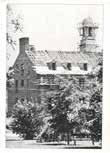
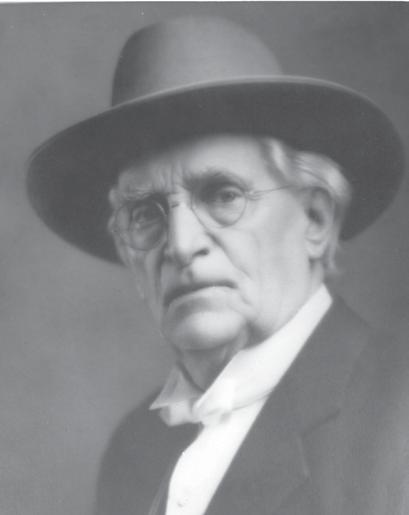
and administration, taught by our committed faculty members, enabled by our support staff, and embodied in the lives and ministries of our graduates. Our thousands of alumni serve around the world as pastors, church planters, missionar ies, educators, chaplains, counselors, and leaders of denominations and non-profit organizations, as well as in a variety of other ministries.
As we celebrate our first one hundred years of service during the academic year 2022-2023, we are standing on tiptoe in joyful anticipation of the future that God has for us. Truly, great is His faithfulness!


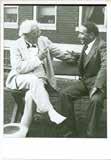
Sheila Lovell began working as Executive Assistant to the Presi dent under David McKenna in 1982. Over the next 32 years she served in that position for five pres idents, moving in 2014 to Special Assistant to the President and Grants Administrator in the Ad vancement Office. She continues to use her writing skills for the Lord.

H. C. Morrison’s commitment to the teaching of the Scriptures as the basis for faith and practice (“the whole Bible for the whole world”) continues to be honored at Asbury Seminary.
Dean Cook joined the Navy because he wanted to see the world. As a young man, Dean was interested in many things, but like a jigsaw puzzle dumped on a table, nothing connected. After meeting Jesus at a Christian servicemen’s center near his base in the Philippines, he began to learn about discipleship and the Christian life and see how the pieces of his life started to connect.
After returning to the States, he was selected as an aircrew member on a Navy bomber. As part of his training, he was asked: “How would you feel if you dropped the bomb that would kill half a million people?” That question started him thinking, and he realized that dropping bombs might not be God’s plan for his life. He started attending a church in Anacortes, Washington, where he not only met his future wife, but also encountered Jesus in a new way. During a revival service, the evangelist asked him if he would like to go to the altar. At first, Dean was angry and embarrassed to be singled out, but went forward.
“When I went, the Lord really touched me and I not only settled that question of what I should do, but it had to be complete and total obedience to the Lord,” Dean said. “I made that total dedication and obedience there, and when I arose, I knew I was called to preach the Gospel and not drop bombs.”
Dean returned to the Navy and asked to join the reserves, starting Seminary to become a Navy chaplain. From 1966-1988, he served the Marine Corps, Navy, Coast Guard, FBI Academy, Naval Post
graduate School, the Carrier Princeton, the Carrier America, a variety of amphibious ships and on a variety of bases, including Pearl Harbor.
“I learned a lot about myself. I learned a lot about other people. I learned a great deal about war, what it does to people, and it's not a pretty thing,” he said.
After retiring from the Navy in 1988, Dean earned his Doctor of Ministry degree from Asbury Seminary in 1990. After graduating, he taught and served as college chaplain at Roberts Wesleyan College until 1994. He served as the Chaplain Endorsing Agent for the Free Methodist Church from 1991 to 1995 and served as the senior pastor of Wilmore Free Methodist Church from 1994-2004.
Because of his training at Asbury Seminary, Dean believes he was able to minister to people no matter their faith, background, or history. Because of his Methodist background, Dean found he was able to relate to others in a way that chaplains from other faith backgrounds could not.

“We related on a different level, which is just the human level of we're all in need of Christ, we're all in need of faith,” he said. “We all are weak, and God loves us, and Asbury Seminary helped me to be that kind of person.”
He has found the Seminary to be a lifelong resource of refreshment, rest and encouragement through conferences, professors, and access to the B.L. Fisher Library.
“Not only did I get a good education, not only was I taught the love of Christ for everybody, but I
think the resources that they provided for me, and the encouragement was just great,” he said. “I don't know anybody in all of the chaplains in all of the denominations that I ran across that had a better seminary experience than I did.”
Dean’s life and ministry has influenced hundreds, if not thousands of individuals. He shared one story of a man he visited at the brig in Quantico, Virginia. Dean shared the gospel message and gave him a New Testament, but at the time, the young man didn’t seem to respond. After Dean left, the young man gave his life to Christ and now is a successful pastor in Tennessee.
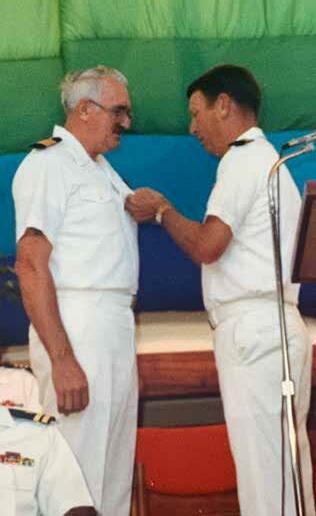
“I have loads of chaplains that I have gotten into the military, and they've all done really well,” he said. “I know there are many and I give the Lord the credit because the Lord is the One who really does the work. We just come alongside.”
After a lifetime of adventures, Dean continues to serve the Lord in a more private way, serving on conference committees, hosting a men’s group on Wednesday noons, working with seniors in their church, and inviting individuals, couples, and families to their home for an evening of good food and encouragement.
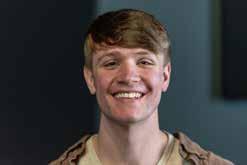
The Seminary started with three students and a quote from founding president H.C. Morrison that said, “The Whole Bible for the Whole World.” The student body has grown from three to 1700+ with an alumni base of more than 13,000. As you reflect on the Seminary’s history and your part of God’s mission in the world, what does it mean to you to be part of the Seminary’s present and future?
“To be a part of Asbury Seminary is to step into the story of a diverse, biblecentered community whose origins are rooted in the calling of God's people to participate in his redemptive and transformative mission for the world.”
Daniel Rose
M.A. in Biblical Studies, 2022
As we approach our Centennial Celebration, we look back at 100 years of global and national impact, “Thanking God for the Past even as we Trust Him for the Future.” We also take this oppor tunity to reflect upon Asbury Seminary’s resilience and longevity considering the multiplicity of chal lenges that presently beset areas of the academy. In doing so we must be intentional about asking ourselves the following questions: (1) How does embracing the faith of the past and successfully passing down the same from generation to gener ation inform our faith today? And (2) How can we worship, believe and live a practical, integrated faith within the context of the Seminary for the next 100 years? The answers to these questions are varied, multifaceted and to some extent, complex. Yet, allow me to share a few brief reflections which I hope will encourage our hearts on the eve of such a momentous occasion.
One of my favorite theologians is the great St. Vincent of Lerin’s, a 5th-century pilgrim monk based out of southern Gaul. In the Lerinian’s passionate pursuit toward demonstrating how the church preserves, upholds and passes on Christian truth amid growing social and cultural change, he develops his Commonitorium. Thomas Guarino, in speaking of St. Vincent’s Commonito rium suggests, that in it, the Lerinian “insists on the material continuity of the ancient faith.” This
material continuity or resilience of the faith once received is made possible mainly because of its fresh expressions throughout the generations, a notion which gives way to Vincent’s second rule concerning the deposit of faith as quod ubique, quod semper, quod ab omnibus credentum est (believed everywhere, always and by all). This faith is successfully passed on throughout generations because the fundamental content never changes and remains the same but how the content is expressed is, and should always be, open to in novation and creativity.
If anything of the Lerinian’s spiritual and theo logical work could remind me of and could be applied to, our current context, it would be that it has fallen to us to continue to speak in new ways about ancient things (dicas nove non dicas nova). This process is never to become static and linear but must be a dialectical and dynamic action, allowing us to go back and forth between the content of our faith and the context of our commu nities. In continuing to pass on this innovative but non-violating faith, Asbury Seminary will continue to faithfully reverence its past, relevantly address the present culture and prayerfully trust God for a prosperous future.
Yet, away from the Lerinian’s work, I am also reminded of yet another Latin axiom which Asbury Seminary practically embodies and contributes
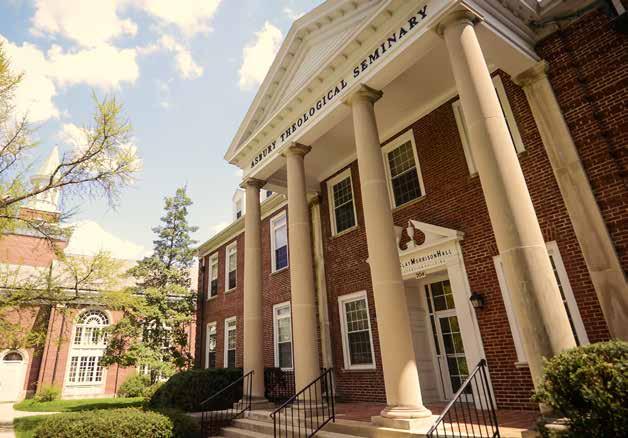
to our historical resilience, namely, lex orandi, lex credendi, lex vivendi (the law of prayer, is the law of belief, is the law of living). This expansive and sometimes complicated Latin phrase speaks not only of the foundational methodology for how we come to receive God’s revelation of Himself but also of the reciprocity of such a revelation between whom it is we worship, what we believe about whom we say we worship and how that experience and belief in worship impacts our daily living. Be it chapel services for students and faculty, students praying for each other on campus, or devotionals at the start of every faculty or staff meeting, Asbury Seminary truly incarnates what it means to engage in worship practices that shape our believing and living.
Another aspect which I believe contributes to our resilience is the strength of our institutional leadership. Here, I am reminded of St. Ignatius’ admonishment toward unified action to the lead ership at the church of Ephesus:
“Therefore, in your concord and harmonious love Jesus Christ is sung. And do ye, each and all, form yourselves into a chorus, that being harmoni ous in concord and taking the key note of God (the key of God) ye may in unison sing with one voice through Jesus Christ unto the Father, that He may both hear you and acknowledge you by your good deeds to be members of His Son. It is therefore profitable for you to be in blameless unity, that ye may also be partakers of God always.”
The truly visionary leadership of the various presidents (former and current) along with the committed, creative and unwavering work of the staff and faculty has been and continues to be, the backbone of the institution’s resilience and success. All of these vocational, professional and
relational aspects when working together in unity toward the same goals cause us to sing together “in the key of God.”
Penultimately, Asbury Seminary students and alumni are the heart of seminary. Asbury Theo logical Seminary has historically been resilient because of its passion for Jesus and service in His name which drives our educational and formation al impetus. From Institutes offering formational modules for lay leaders to Doctoral degrees pre paring 21st century Pastor Theologians, Asbury Seminary’s students and alumni embody the Latin Motto ad majorem Dei gloriam (For the greater glory of God) in their service around the world.
Lastly, after having named the things above which contribute to the Seminary’s historical resil ience, we must all once again be reminded that in considering the resilience of our inner academic structures, our leadership and student body, such success could not be possible without God’s grace and His mercy. All that we have done, all that we are doing and all that we will do we owe to the one we historically know as the mysterium tremendum et fascinans (tremendous and fascinating mystery). It is to this, the One and only true God that we offer praise for 100 years of resilience and success.
Dr. Emilio Alvarez, Associate Provost of Lifelong Learning, is one of the up-and-coming scholars and com mentators on the intersection of religious education and theology in America. As a ministerial practitioner, his vast ex perience within the Christian Church world-wide has positioned him as a prophetic voice, especial ly within Afro/Latino communities of faith.

The truly visionary leadership of the various presidents (former and current) along with the committed, creative and unwavering work of the staff and faculty has been and continues to be, the backbone of the institution’s resilience and success.
During WWII, Corporal Jacob DeShazer was part of the Doolittle Raid on April 18, 1942, in direct response to the Japanese attack on Pearl Harbor. Close to a suicide mission, the raid was designed to bring war to the Japanese homeland for the first time. DeShazer was one of five crewmen who flew on the Bat out of Hell, a B-25 bomber that took off from the USS Hornet. After the raid, the crew was forced to bail out over Japanese occupied China where they were held captive for 40 months.
During this time, they endured systematic torture, beatings, starvation rations, and solitary confinement for 34 of the 40 months. His pilot and engineer gunner were killed by firing squad. In response to DeShazer’s prayer, he and a few others were given Bibles during their stay. This changed everything. After accepting Christ, DeShazer vowed that if he was freed from prison, he would return to preach the Gospel to the Japanese people.
“God gave me grace to confess my sins to Him and He forgave me all my sins and saved me for Jesus’ sake…. Suddenly I discovered that God had given me new spiritual eyes and that when I looked at the enemy officers and guards who had starved and beaten my companions and me so cruelly, I
found my bitter hatred for them changed to loving pity,” DeShazer said in an article originally posted by the Christian History Institute.
After DeShazer’s release at the end of the war, he earned a Bible degree from Seattle Pacific College. In 1948, he and his new wife returned to Nagoya, the very city he had bombed during the Doolittle Raid.
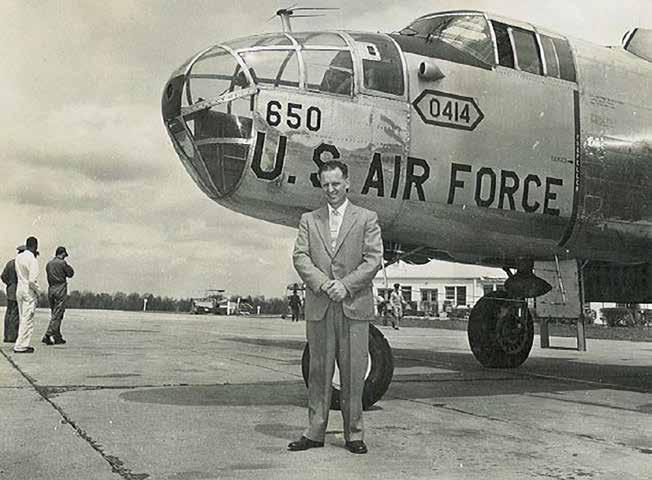
“How much better it is to go out to conquer evil with the gospel of peace!” he wrote in his book DeShazer
In 1949, the Toyoko War Crimes Tribunal sen tenced the judge who had convicted DeShazer and his comrades as war criminals, to death. DeShazer fought vigorously for a one-time pardon for the man who was once his enemy.
In 1950, he prayed and fasted for 40 days, asking God for the Lord’s intervention in Japan. He credits this fast with bringing Mitsuo Fuchida, the man who commanded the air attack on Pearl Harbor, to Christ. Fuchida accepted Christ after reading a tract that DeShazer wrote. In a powerful demonstration of God’s forgiveness and grace, the two started preaching together and thousands came to know Jesus’ love and the power of forgiveness.

DeShazer and his wife worked in Japan for 30 years and planted 23 churches.
The Seminary recently raised more than $40 million for student scholarships as part of the Hundredfold Comprehensive Campaign. How has the Seminary’s commitment to scholarship and financial aid helped you answer God’s call to ministry?
this Hundredfold Comprehensive Campaign, Asbury Seminary has continued in its mission to spread the gospel around the world one person at a time. I, as a young female from a small island nation in the South Pacific Ocean, am blessed to be a scholarship recipient and partaker in that mission as I continue my Master of Theology degree.”
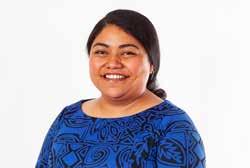 Christina Liu
Christina Liu
M.A. in Theological Studies, 2022 Th.M. 2023
“InJacob DeShazer with Mitsuo Fuchida
One hundred years! That is a long time. When we usually think of a 100-year-old, the first thing that comes to mind is that it is a miracle that the individual got to 100. The next thought is probably the vision of someone a little slow, set in their ways, maybe even stubborn. Frankly, when we think of a 100-year-old, we do not think of innovation or cutting edge. However, that is not the case with Asbury Theological Seminary. As we celebrate Asbury’s 100 years of service in the equipping of men and women to build the Kingdom of God, we must not only look at the accomplishments and what God has done through Asbury Seminary and in the Seminary, but we cannot lose sight of all the innovations that the Seminary is currently engaged in and nurturing.
While we can think of the launch of Asbury Seminary Global and the development of learning sites throughout the country and the world, or all the strides made in nurturing effective online learning and instruction, I think that one of the most significant innovations in recent years has been the development of the Asbury Latino Center. Asbury Seminary has been providing courses in Spanish for more than 18 years. Those courses led to the development of the Latino/Latina Studies Program (LLSP), and four years ago, LLSP led to the development of the Asbury Latino Center. Today, the Asbury Latino Center and the programs that it manages represent a significant innovation within the life of the Seminary and theological
education in the Church throughout the world. The bilingually-delivered Master of Arts in Ministry and the Latino Ministry Formation Program (the successor of the Latino/Latina Studies Program) embody educational innovation in the service of the Latino/a community.
The bilingually-delivered Master of Arts in Ministry degree embodies innovation by being the only bilingually-delivered master’s degree in the USA within theological education. While there is a growing number of Spanish-language master’s programs in various seminaries and divinity schools throughout the country, the choice to offer a bi lingually-delivered degree represents a significant choice to serve the Latino/a community in the USA as it grows and becomes more diversified. The default thinking about the Latino/a community in the USA is that it is a Spanish-speaking community. Thus, it would follow that an educational institution like Asbury would provide a Spanish-language master’s program. However, according to a 2015 Pew Research Trust report, “…about six-in-ten U.S. adult Hispanics (62 percent) speak English or are bilingual, according to an analysis of the Pew Research Center’s 2013 National Survey of Latinos. Hispanics in the United States break down into three groups when it comes to their use of language: 36 percent are bilingual, 25 percent mainly use English and 38 percent mainly use Spanish. Among those who speak English, 59 percent are bilingual.” Hence, a bilingual com
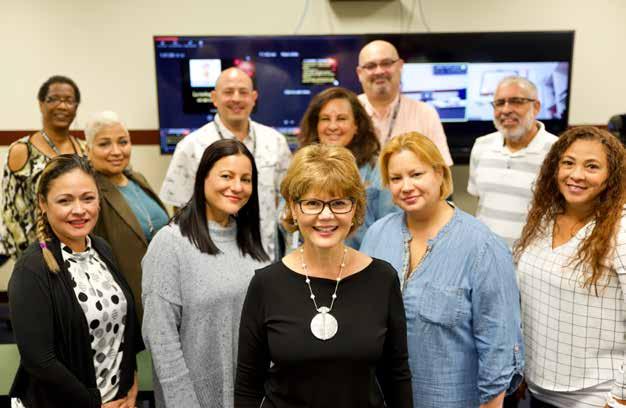
munity requires leaders equipped to do ministry bilingually.
However, it is not as simple as delivering a class bilingually. To truly serve the growing edge of the Latino/a community, ministry training must also consider the bicultural nature of the community. As reported by NBC News, “According to Kantar Consulting’s 2018 Monitor study, a comprehensive analysis of the U.S. consumer market, 92 percent of Hispanics believe that living in the U.S. while maintaining a connection to the culture of their home country is natural.” Latinas/os call it being “a 200 percenter,” that is, 100 percent American and 100 percent Latino/a. While Latinas/os more generally adopt English as a common language and other cultural products distinctive of the USA culture, they continue to enjoy and use the cultural products of the Latino/a culture or at least their home or ancestral country. So, a Latino/a would speak English at their place of employment but will pray in Spanish, read the Bible in English but prefer to sing hymns in Spanish or enjoy going out to eat Italian or hamburgers, but cook Arroz con Gandules or Pozole at home. In addition, while being enculturated on many fronts, Latinos/as in the USA, continue to operate within the frame work of the Latino/a cultural distinctive, such as high-power distance, collectivism, high context, and others. Thus, theological education needs to consider the challenges of biculturalism and bilingualism when serving the Latina/o commu nity, and Asbury Seminary’s bilingually-delivered MAM strives to address such complexity. We use bilingual-Latino/a professors that are well con nected with the Latina/o church and community. These men and women are unique and prepared to serve our bilingual, bicultural students. In addition, the courses, while embodying the core of the Seminary’s ethos and theological distinctives, are focused on the contextual realities of the Latino/a

church and the challenges that pastors and leaders have within their local communities.
Asbury Seminary’s innovation through the bi lingually-delivered MAM has attracted attention from donors and church leaders. Under the leader ship of Dr. Tennent, the Asbury Latino Center has grown immensely. Through Dr. Tennent’s efforts, the seminary recently secured a gift that helped us recruit 38 new students for Fall 2022 for the bilingually-delivered MAM. These students join the current bilingually-delivered MAM students and other Latino/a students that prefer to take bilingual courses even when they are pursuing different degrees. Such growth is only possible by the innovations brought about by the Asbury Latino Center.
At 100, Asbury Seminary shows signs of great vitality and a strong desire to continue carrying its mission into the next 100 years of service. Not bad for a 100-year-old!
Danny Román-Gloró, D.Min, Ph.D., is the Director of the Asbury Latino Center. The Asbury Latino Center bridges the Latino community and Asbury Theological Seminary's theo logical tradition, ethics, mission, and resources. The Asbury Latino Center is focused on helping Lati nos(as) become agents of change and leaders within the Kingdom of God and their communities by providing contextually-relevant and theologi cally-robust educational programs. Danny has a Ph.D. in Communication (Regent University) and a D.Min. in Preaching (Gordon-Conwell Theological Seminary) and is an ordained elder in the Southeast Region Conference of the Free Methodist Church, USA. Before joining Asbury Seminary, Danny was a pastor for 23 years and pastored churches in Miami, Chicago, and Boston.
The bilingually-delivered Master of Arts in Ministry degree embodies innovation by being the only bilingually-delivered master’s degree in the USA within theological education.
As a nine-year-old, Rev. Jessica LaGrone wrote sermons in her head. Today, she serves as the first female Dean of Chapel at Asbury Theologi cal Seminary and is a widely published author with Abingdon Women.
“My call phrase was, ‘I could do better than that,’ Jessica said with a smile. “Even as a child, I knew that if you preached and could make the Bible boring that something was wrong. I thought, ‘Let me at it!’”
God called Jessica to be a healer, but not in the way she first thought. She pursued a pre-med degree in undergrad, until her public speaking professor pointed out that every speech she gave was actually a sermon. Now, instead of mending physical wounds, she spends her life directing folks to Jesus, the healer of souls.
“My calling is to preach and write to make the stories of Scripture come alive and show how they overlap with our lives in incredible ways,” she said.
Jessica enrolled at Asbury Seminary and while there, God confirmed her call to preach during a chapel message using Psalm 84. The sermon that day was about the foolishness of the Lord and saying yes to things that are only wise in His eyes. As the congregation sang, “Better is One Day,” Jessica felt God telling her to hold open the doors of Estes Chapel.
Rev. Jessica LaGroneNew at discerning the voice of God, she argued, but finally obeyed. As she held open the doors, watching the cars and people pass by, she felt the Lord say, “This is your call. You’re a doorkeeper.”
“I came to Asbury Seminary as a student feeling inadequate and ill-equipped,” she said. “When I graduated, I felt inadequate, but equipped. I tell my chapel interns that you feel that way because you are. Our job is to bring people to Jesus. I can’t fix, change or heal, but I know who can.”
After earning her M.Div. from Asbury Seminary in 2002, Jessica served as the first female Associ ate Pastor of the 10,000-member The Woodlands United Methodist Church near Houston, Texas. In 2014, Asbury Seminary invited Jessica to return and assume the role of Dean of Chapel.

“Asbury Theological Seminary is committed to equality in every possible way,” Jessica said. “Our ethos, teaching and preaching reflect this, and it is enacted in my role as pastor to the community. I don’t see myself as the first female anything. I just wake up and go do ministry every day.”
While a student at the Seminary, her closest mentor was the late Dr. J. Ellsworth Kalas. He, too, affirmed her calling. Each day, she reads from his Bible as she seeks to fill the ministry gap he left behind.
“Leading worship is like being a tour guide at the Grand Canyon,” Jessica said. “You have to be excited and point to the thing you’re in love with. You have to stay in love with God and point people to Him, calling attention to the glory of God.”
She’s written several books and studies, including Namesake: When God Rewrites Your Story, Under Wraps, Broken and Blessed: How God Used One Imperfect Family to Change the World, Set Apart:
Holy Habits of Prophets and Kings, and The Miracles of Jesus. Jessica’s new book, Out of Chaos: How God Makes New Things from the Broken Pieces of Life, explores the beauty that God can bring out of the chaotic state of our lives and our world. She blogs at jessicalagrone.com.
She and her husband, Jim, have two young children, Drew and Kate, and a dog named Bluebell, who is the color of Homemade Vanilla.
Asbury Seminary graduated its first female student in 1924 and has been equipping men and women to preach, lead and serve in every ministry context. How has this foundation equipped and empowered you to answer your call?
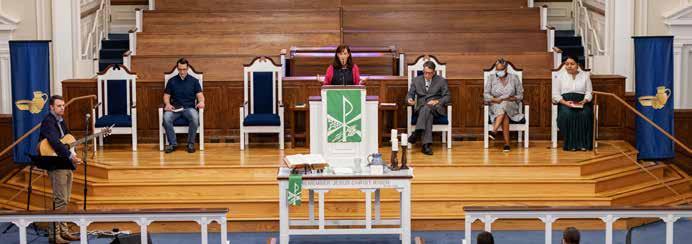
“Answering God’s call can come with a lot of unknowns, so I am encouraged by the men and women that have come before me. Over the years, there have been many things to learn about ministry within different contexts, but God is continu ously working here. I believe that we are ultimately being called and equipped for a life of service. I’m grateful to be a part of what God is doing at Asbury Seminary!”
Stephanie Rountree M.A. in Intercultural Studies, 2023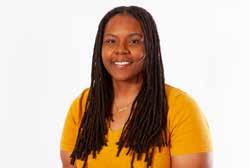
In the summer of 2020, the leadership of the seminary designated the first floor of the Crary/ McPheeters building to be a space to recognize and honor the alumni of the institution and the 100-year history of Asbury Theological Seminary. Dr. Tennent appointed me to oversee the project, being the Director of Alumni. After two years of research and renovation, we dedicated the Global Alumni Center on September 6, 2022. Upon being invited to speak at the event, I was led to a passage of scripture from Joshua 4:19-24:

On the tenth day of the first month the people went up from the Jordan and camped at Gilgal on the eastern border of Jericho. And Joshua set up at Gilgal the twelve stones they had taken out of the Jordan. He said to the Israelites, “In the future when your descendants ask their parents, ‘What do these stones mean?’ tell them, ‘Israel crossed the Jordan on dry ground.’ For the LORD your God dried up the Jordan before you until you had crossed over. The LORD your God did to the Jordan what he had done to the Red Sea when he dried it up before us until we had crossed over. He did this so that all the peoples of the earth might know that the hand of the LORD is powerful and so that you might always fear the LORD your God.
This passage of scripture deals with God’s faithfulness to the children of Israel, especially
highlighting their safe arrival to the Promised Land. He commanded twelve men, representing each of the tribes of Israel, “to take up a stone” from the middle of the Jordan and place them on the other side. These stones were to be a memorial for gen erations to come. God wanted them to remember, and not forget. He particularly wanted them to remember His loving kindness and care of them, parting the Jordan river so they could safely cross over it on dry land. It is important for the people of God to remember. It is important to remember the heroes of the faith, to remember God’s faithful ness, to take the time to reflect on the past. This remembering informs us of how to conduct our selves in the present and becomes a compass to help guide us into the future.
In many ways the Global Alumni Center is much like the memorial stones mentioned in this passage. This space includes many visual remind ers of God’s faithfulness to Asbury Theological Seminary throughout our 100 years. It highlights the story of how God raised up this seminary to be one of the conduits heralding His redemption to the world by calling “theologically educated, sanc tified, Spirit-filled men and women to evangelize and to spread scriptural holiness throughout the world…” It has been a blessing to witness students, faculty, staff, supporters, visitors, and alumni enjoy perusing the timeline, listening to selections of chapel music and sermons from our past at the
I pray that, in the years to come, the Global Alumni Center will be a testimonial and witness of God’s faithfulness to Asbury Theological
Estes Chapel display, enjoying the president’s stairwell which honors each president, looking at the memorabilia exhibited on the H.C. Morrison wall, reading through the variety of diverse in dividual alumni stories located on several walls, appreciating the many Chairs of the Board who served faithfully throughout the years, taking time to pray in the strategically-located prayer space, and appreciating the custom-made map with multiple points of light representing the places in our world where our alumni are serving.
I must say though, that my personal favorite display is the Global Alumni Wall. On this wall, we have listed the names of all degree-hold ing graduates under their class year. The names take up an area that is approximately thirty-two feet by four feet. Once the panels with all the alumni names were hung by the installers, I had a quiet moment to be alone in front of that wall. I teared up as I was overwhelmed by the 13,000 plus names of alumni who had answered a call of God on their lives since 1923. The passage of the Great Cloud of Witnesses (past, present, and future) flooded my mind as I gazed on the sea of names. I thought of the countless numbers of souls who have come to a saving knowledge of Jesus Christ through the ministry and witness of all the alumni who said “yes” to Jesus. I came away grateful that H.C. Morrison had the courage to follow the Lord’s leading, boldly walking across Lexington Avenue in Wilmore, Kentucky to start Asbury Theological Seminary 100 years ago with
just a handful of students. This is a great example of God’s story of redemption through multipli cation of souls who say “yes” to Him. I can only imagine what God has in store for our Asbury Seminary’s next 100 years. I can only give thanks for the numerous persons in the future who will also say “yes” to Jesus.
I pray that, in the years to come, the Global Alumni Center will be a testimonial and witness of God’s faithfulness to Asbury Theological Seminary throughout our history. I hope we as a community will take time to remember His faithfulness as we seek to chart our future course with His leading and guidance. Just as God used Israel to be a light to bless the nations, may He continue to use Asbury Seminary to send forth alumni so “that all the peoples of the earth might know that the hand of the LORD is powerful and so that you might always fear the LORD your God.”
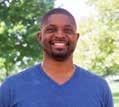
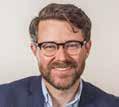
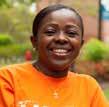
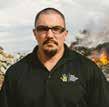
Tammy Cessna, Director of Alumni & Church Relations, is a graduate of Asbury Theological Seminary and loves being part of the alumni community. Tammy will celebrate 20 years of working at Asbury Seminary in 2023. She has three grown kids, two grandchildren and a fuzzy dog, named Ozzy. She has a generous and gentle spirit. If she can create joy, she does it without hesitation.
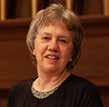

See how students, faculty and alumni attempt something big for God all over the world.
Ricardo Gomez seeks to be a person of peace in Medellin, Colombia, and Latin America. Using the community church planting model, he and his team have planted more than 700 churches and introduced more than 3,300 people to Jesus this year. As Area Director for Latin America with the Free Method ist Church and Executive Director for Impact Latin America, he trains, mentors and equips others to create disciple-making disciples.
“Our slogan is planting God’s peace,” Ricardo said. “We believe that is what Latin America needs. You know, we live in a very complex society here. There's a lot of turmoil, it is like a pressure cooker, where there is political unrest, social unrest and the diaspora of almost two million Venezuelans living in Colombia.”
The Community Church Planting model begins with prayer and is based on John 10 where Jesus sent disciples two-by-two to find a person of peace and preach the gospel. This method mobilizes laity, whether old or young, men or women to be able to tell others about Jesus.
In 2018, Ricardo and a team of 25 Latin Ameri cans developed a practical, 18-class curriculum to train new leaders in spiritual formation, theological knowledge and practical implementation.

Through the training, they are creating teams, offering pastoral care support, developing resourc es and providing structures so the church planting movement can continue into the next generation. As part of the training, new disciples learn to tell the story of what Christ did for them and allow the Holy Spirit to work through that message.
Ricardo believes that without biblical and theo logical training the growth of the church planting movement will stagnate. While structured, the
training must also be organic. He likens it to growing a tomato plant and staking it as it grows to provide the right amount of structure, stability and freedom.
“We believe community church planting is a movement of God, where we feel that God will provide us the energy and the fullness of the Holy Spirit for multiplication,” he said. “But we believe the curriculum is the gasoline that will sustain the movement because a new generation of leaders is going to be raised up.”
This training isn’t solely for the young. While in her late 50s Pastora Naya attended church in Maturin, Venezuela. She came to know Christ and started attending the church planting training to learn to tell others about her experience. As she studied and prayed, she felt the Lord prompt her to find a person of peace who would open his or her home to a church gathering. The Lord led her to a person and a place; she started to disciple that individu al and later the neighbors joined. The neighbors invited friends, more neighbors and relatives until they outgrew the house.
With 60 people attending, she asked for a pastor for her new group. Her pastor replied that she was already pastoring, so he would continue to equip and train her. Now Pastora Naya is an ordained elder, and her congregation has grown to about 200 people. But Pastora Naya felt that God was leading her to do more. She helped develop new leaders for the church in Maturin, Venezuela, and is now an inter national church planting missionary in Costa Rica.
“So that is our D.N.A., disciple-making-disciples, churches planting churches, and pastors multiplying pastors,” he said. “It’s a blessing to see Pastora Naya, later in her life, decide to say yes to the Lord, and to see the results of her fruitfulness.”
Ricardo Gomez graduated from Asbury Seminary with an M.A. in Theological Studies and a Ph.D. in Intercultural Studies in 2003 and 2007, respectively. While at Asbury Seminary, he met his wife, Beth. In 2006, the couple accepted their first placement as missionaries in Santiago de Chile and in 2013 accepted a position at Colombian Biblical Seminary where he served for five years. In April 2018, he was named the Area Director for Latin America with the Free Methodist Church and in 2019 co-founded Impact Latin America, which he serves as Executive Director. Ricardo and his wife have two children and live in Medellin, Colombia. Ricardo also currently serves on the Asbury Seminary Board of Trustees.

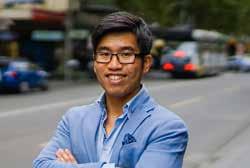
Asbury Seminary celebrates 100 years of equipping students to serve around the world. How are you called to join God in His mission?
M.Div., Asbury Seminary, Graduating 2023
“There are not two realms, not a spiri tual realm nor a secular realm, but one realm in which Christ reigns. And every gift and skill that we have, in whatever capacity, as a banker or a preacher, at the boardroom table or behind the pulpit, all are from the Lord and are required to be harnessed for the in-breaking of His kingdom.”Rob Lim

Dec. 4, 2022 Advent Vespers
Feb. 16, 2023 Andrew Peterson in concert
Feb. 20–24, 2023 Week of prayer & fasting
March 2–4, 2023 Wesleyan Theological Society annual meeting
April 19, 2023 Joint service with Asbury University
May 20, 2023 Commencement
July 4, 2023 Wilmore Community celebration
Sept. 5, 2023 Convocation and Day of Prayer
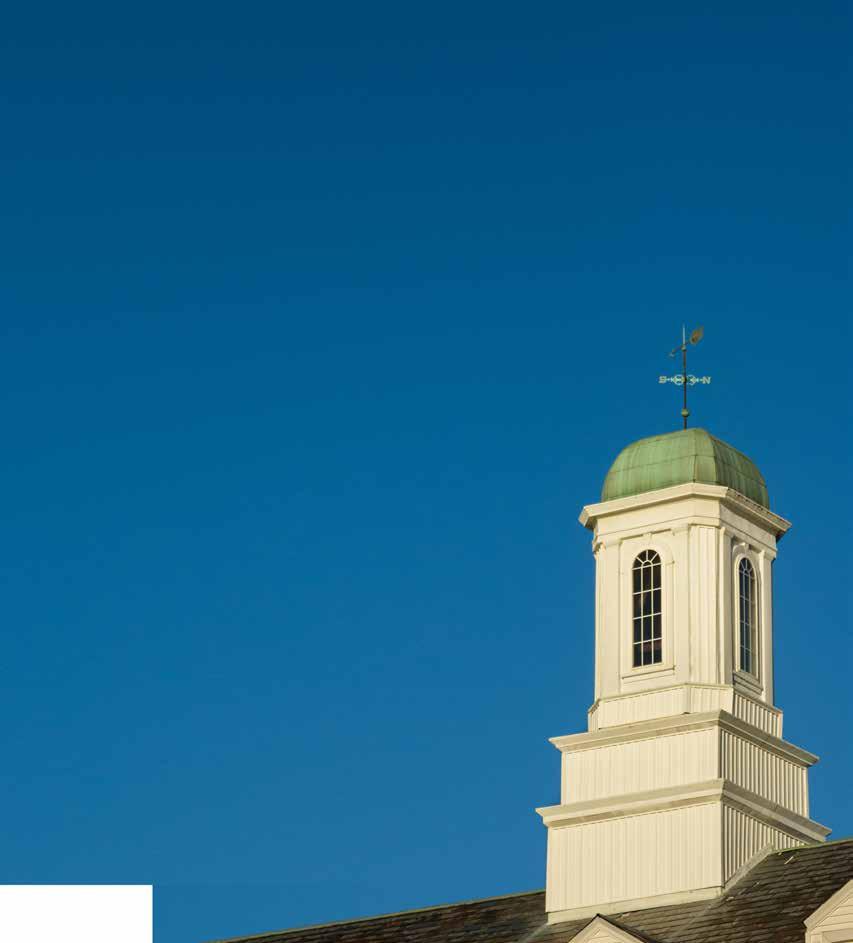
Sept. 7, 2023 Outdoor Fall Kickoff
Sept. 20–23, 2023 New Room Conference
Oct. 11–14, 2023 President’s Retreat
Oct. 17–19, 2023 Kingdom Conference
Nov. 1, 2023 All Saint’s Day Chapel
Dec. 3, 2023 Advent Vespers
Visit asbury.to/centennial for more information about our centennial celebration.
Today more than ever, people need reliability, certainty, and accountability when planning for their financial future. We are all looking for ways to invest that are stable, solid, and firm. For many of us, it means a return to classic financial values and enduring ideals. One of these values is the charitable gift annuity (CGA).*
*A CGA is a simple agreement between you and Asbury Theological Seminary, where you agree to donate a sum of money to the Seminary. In return, we agree to pay you a fixed dollar amount every year for as long as you live.
To learn more about charitable gift annuities visit asbury.to/leavealegacy

This article originally appeared in the Herald, February 12, 1936
Elizabeth Whitehead joined the Herald staff on September 1, 1906. In 1911 she was elected Assistant Editor, a position she held until her marriage to H.C. Morrison in 1916. Afterwards, she became Associate Editor of the Herald and continued in this capacity until her death in 1945. Mrs. Morrison was affectionately known to the Herald readership as Aunt Bettie. She was a partner with Dr. Morrison in the founding and early years of Asbury Seminary.

Everyone who has anything worthwhile in him, desires to achieve success. There are different ideas, however, of what constitute true success. As someone said, “A great part of our self-education depends on our ideals – we do not reach them, but they help to mold us.”
True success is not a splendid career in the eyes of the world, although most everyone is content with this achievement. There are those who have become the best in their profession or line of work, whose hearts are at variance with the law of God, and whose moral life has counted for nothing among their fellowbe ings. There are those who have become world-known, perhaps for their brilliant thought, or genius in me chanics, invention or financial success, but their life, so to speak, ends with their achievement, and when they leave this world, they go out into eternity a pauper – a lost soul!
The success which counts, counts for this world and that which is to come, and is being and doing what God sent us here to be and do. When we fail to get into the channel of God’s ordering we are out of the way of true and abiding success. There are those whom we consider failures from a worldly standpoint, but when the final reckoning comes, their rewards will far exceed that of many who were counted a success in this life. Indeed, the humblest follower of the Lord Jesus who, through temptations and trials, has overcome the tempter and made a safe landing on the shores of sweet deliverance is incomparably more of a success than the man whose millions are left behind to curse his posterity.
It would be a great thing if each of us could realize that even our little life is planned of God, and if we would fit into that plan how much better it would be for us and all concerned. Our catechism says that we were created to “glorify God,” and if we miss the purpose for which we were created, we have deliberately thwarted God’s plan and purpose for our lives, and we shall inevitably fail of that which is highest and best in this life, and that which is to come.
We have been studying the wonderful life of St. Paul, who was Saul before he got into the right channel of activity. Imagine what would have been the outcome in his life had he not recognized in that voice which came to him on the Damascus Road, the voice of God, and at once surrendered to the Man of Galilee, and asked for orders for his life. We have seen what it has meant to him, and to the world, that he met the defeat of his own plans that day, and fell into the divine order. We may not have the capacity to become what Saul of Tarsus became, but we may be in the channel of God’s will just as truly as was Paul, and our lives may have the smile of God upon them, though in some hidden way that the world may never know. The patient, godly mothers who have trained their children for usefulness in the kingdom of God will, when the rewards are given, receive the “Well done,” as truly as the sons or daughters who have wrought more publicly in world affairs. “In the knowledge of God is the only true wisdom; in the service of God, the only true freedom; in the love of God, the only true felicity; and these are all so vast that though they have their seed-time on earth, room for the harvest can be found only in heaven and eternity.”
May it be the fortunate lot of every reader of these lines to find God’s plan for his or her life, and then surrender to that plan at any cost. Then we shall find that,
If thou, my Jesus, still be nigh, Cheerful I live and joyful die; Secure, when mortal comforts flee, To find ten thousand worlds in Thee.

The ginkgo trees in front of the administration building at Asbury Seminary are legendary for their golden fall hue. People often ask about the story of the ginkgo trees and how they came to be on Asbury Seminary's campus. There are multiple stories you may have heard, but here is the true account:
Myth : H.C. Morrison brought the ginkgo trees back from China while he was on his 1909 around-the-world-evangelistic tour.
Fact: T. Delos Crary, a Seminary board member and close friend of McPheeters, brought the ginkgo saplings back from a missionary trip and planted them in front of the recently completed Adminis tration Building. Student yearbook photos suggest the trees were planted in 1952 or 1953.
Mr. Crary suggested several ways in which the ginkgo trees symbolized the work of Asbury Seminary:
1. The foreign origin of the ginkgo exemplifies Asbury Seminary’s dedication to the mission field, reminding all who walk the campus to go into the world to spread the good news of Jesus Christ.
2. The ginkgo tree is a reminder of ancient times, a green echo of the days when God’s love of human kind found expression in the beautiful blessings in the Garden of Eden.
3. The ginkgo is a remarkably hardy species, notable for enduring countless infections, droughts, winds, and storms, illustrating the hardiness of the Seminary graduates called to foreign lands.
4. The ginkgo sheds its leaves in one glorious, golden fall, much as each year the Seminary releases her graduates to spread the golden glory of the gospel around the world.
Taken from The Story of Asbury Theological Seminary by Dr. Kenneth C. Kinghorn.
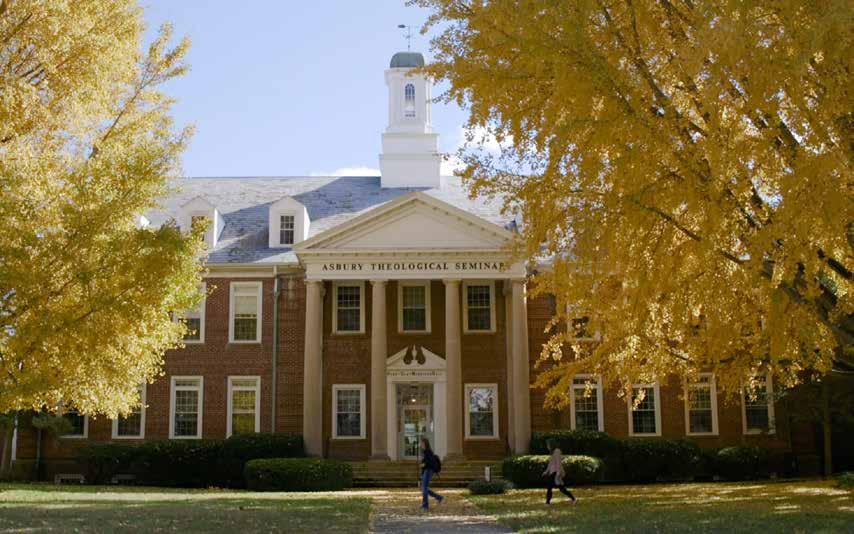


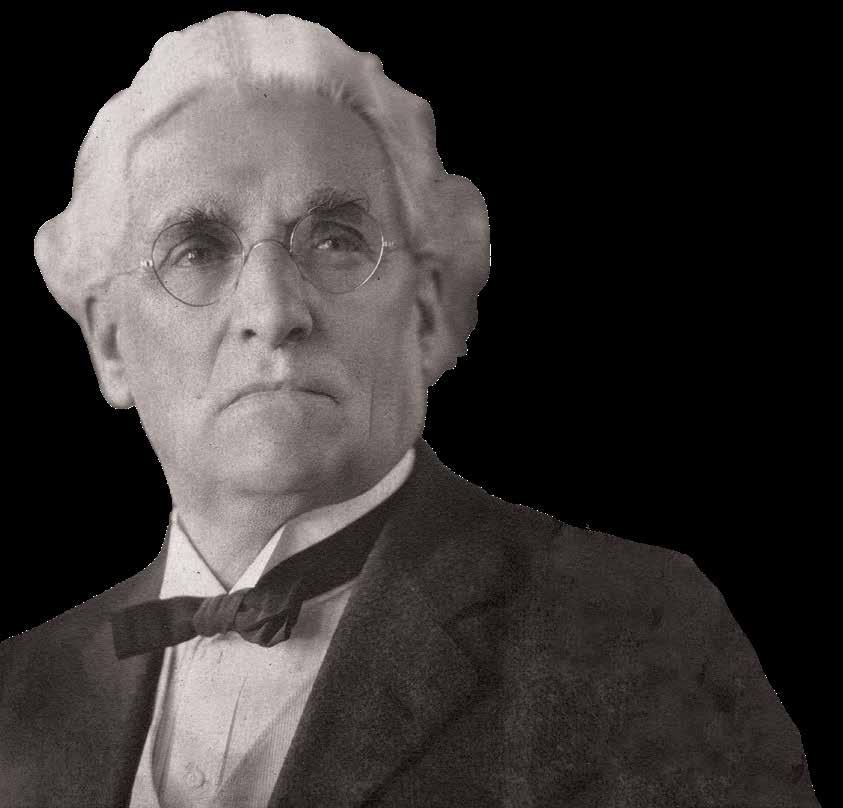
“We are believing and undertaking to build up a Seminary for the training of a ministry that will bring millions of lost souls through Christ to salvation.”
H.C. Morrison Founder, Asbury Theological Seminary – 1923


“We are living into a challenge which God put into my heart many years ago: ‘Attempt something so big, that unless God intervenes, it is bound to fail.’”
Dr. Timothy C. Tennent Current President, Asbury Theological Seminary
1923
Asbury Seminary opens in the Fall with three students and Henry Clay Morrison as president; adopts motto “The Whole Bible for the Whole World.”
1924
Asbury Seminary’s first alumnus graduates.
1931 Asbury Theological Seminary Articles of Incorporation signed.

1941
Asbury Seminary moves into first building (Talbott Hall, now Larabee-Morris) apart from Asbury College
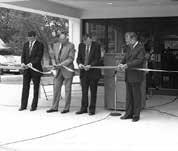

1942
Death
1942
Julian Claudius McPheeters becomes president while pastoring Glide Memorial Methodist Church in San Francisco. He commuted for 6 years.
1946
Asbury Seminary fully accredited by the American Association of Theological Schools (AATS) (now tATS); J. C. McPheeters first proposes a school of missions and evangelism
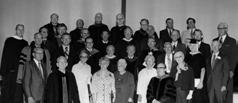

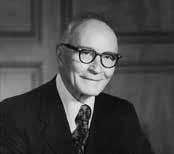


1947
Henry Clay Morrison Administration Building completed; McPheeters prayed for lumber, which was scarce due to the war, and a fully loaded lumber truck broke down in Nicholasville; the Seminary bought the entire load and finished the building.
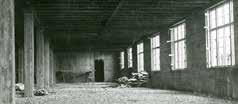

1949
Asbury Seminary adopts the policy to racially integrate the student body with first Black student admitted in 1951


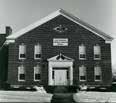

1952
Board member T. Delos Crary brings two ginkgo tree saplings from China to be planted in front of the Administration Building
1986
Death of Frank Bateman Stanger; McPheeters Center completed


1987
Center for WesleyanHoliness Studies begins; later named the Center for the Study of World Christian Revitalization Movements

Rosa Foster Beeson Manor (now Asbury Inn & Suites) opens; Ralph Beeson dies in October and the Seminary announces the Beeson estate gift in November

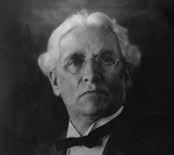
1992
William House and Elizabeth House completed; Orlean House built next; Beeson Center constructed, Beeson Pastor Program begins
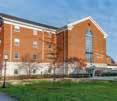
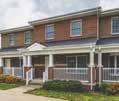
2002
Maxie Dunnam releases his “White Paper” to introduce the “Marketplace Leadership Initiative”
2003
International Leaders Doctor of Ministry degree established
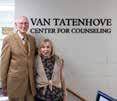
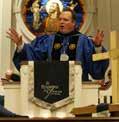
1994
David McKenna retires; Maxie Dunnam elected President; Rose Hill becomes official president’s home; John Wesley statue erected
1995
McKenna Chapel dedicated; High-tech campus completed; Francis Asbury statue erected;

2004
Maxie Dunnam retires; Jeff Greenway elected President

2005
Board of Trustees votes Charles Wesley’s “And Can It Be” as Asbury Seminary’s official song

1997
Asbury Seminary launches its “virtual campus”

1999
Florida campus opens with 65 students and 5 professors
2006
2007
Biblical Studies Ph.D. program begins; Cooperative Ph.D. program with London School of Theology begins; Latimer Foundation gift designated for new Kalas Scholarship

2001 Hispanic Initiative begins on the Florida campus
2008
Ph.D. in Wesley Studies begins partnership with Nazarene Theological College; Asbury Cluster Education (ACE) begins; Board of Trustees adopts revised mission statement
2009
Timothy C. Tennent elected President; Doctor of Ministry program developed for Florida Dunnam Campus; Kalas Village Phase 1 construction begins (family housing)
2015
Hundredfold Comprehensive Campaign launched; Asbury Seminary Global Partnerships begin
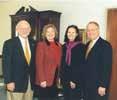


2017
Extension sites begin – currently in Memphis, Tulsa, Colorado Springs, Orlando and Tampa
2010
Florida Dunnam Campus reorganized as “School of Urban Ministries”; Florida Dunnam Campus mortgage note burned; Ethos Statement revised
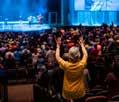

2018
Publication of the Asbury Hymnal; Renovation completed for Estes Chapel
2011
Asbury Institutes launched; Justo Gonzalez Resource Center opens on Florida Dunnam Campus; Phase 2 of Kalas Village begins construction; Gallaway Village construction begins
2020
Asbury Seminary acquires former Wilmore Daycare building; Asbury Seminary achieves highest enrollment in its history with over 1,800 students
2012
Larabee-Morris Hall renovations completed; Seedbed launched to resource the Wesleyan world; Board of Trustees adopts 2023 Strategic Plan
2021
Renovation of Fletcher Chapel completed; Asbury Seminary meets its goal of training 1,000 church planters; Seedbed becomes wholly owned subsidiary of Asbury Seminary; Van Tatenhove Counseling Center dedicated

2013
Harry Hosier Institute opens on Florida Dunnam Campus; “Garden of the Nations” (community garden) opens; Global Church Planting Initiative launches; Church Planting Partnership test model launches in the Fall
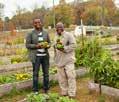
2014
Charles Wesley statue dedicated; Community House at Kalas Village completed; New Room Conference launched, becomes one of the largest Wesleyan conferences in the world
2022
School of Counseling becomes 6th academic school at Asbury Seminary; Hundredfold Comprehensive Campaign ends with $100 million goal exceeded; Asbury Seminary Global launches; Dedication of the Global Alumni Center
2022-23 100th Birthday Celebration

Asbury Seminary celebrated the completion of its new Global Alumni Center September 6, 2022. The Global Alumni Center is located on the first floor of Crary-McPheeters and welcomes alumni and friends and will serve as the hub of the seminary’s engagement with our alumni. Throughout the Center, visitors are invited to explore the rich legacy of Asbury Seminary with pictures, videos, recordings and other interactive displays.

Asbury Seminary welcomed Rev. J. Matthew Barnes, Ph.D., as the new Director of Community Formation. Dr. Barnes comes to this position with experience as a pastor, missionary, and academic in a variety of contexts. He has a heart for mobilizing others to serve Jesus in today’s world and joined the team effective September 6.

Asbury Seminary welcomes Jeremy Fulda as the Director of Career and Calling effective July 11, 2022. Jeremy comes to this position with experience in pastoral ministry, spiritual formation and experience in various crosscultural settings.


Asbury Seminary welcomes Tracey Farrell as the Director of Asbury Global Formation effective June 13, 2022. Tracey comes to this position with a wealth of experience in pastoral care and counseling. Tracey is a graduate of Asbury Theological Seminary, with both a Master of Divinity (1997) and Master of Arts in Counseling (1998). Tracey has extensive and varied experiences working within the church, as well as working with couples and individuals who are working towards spiritual and mental health. Her heart for hospitality is one of many ways that her love for Jesus shines forth.

Asbury Seminary mourns the passing of Dr. Jerry Lee Mercer, Professor Emeritus of Theology and Homiletics at Asbury Seminary from 1972-1999. He also served as Dean of Chapel for three years.

god for the past, trusting god for the future ∙ asburyseminary.edu

Follow us on social media for the latest news, events, and content from Asbury Seminary.
Asbury Theological Seminary announces the creation of two new schools: the School of Counseling and the E. Stanley Jones School of Mission and Ministry, launching July 1, 2022. The new School of Counseling represents a transition from a department of Counseling to an official school. It will position the Seminary for many years of effective growth and fruitfulness in preparing men and women for licensure within mental health professions and training for ministries of soul care and healing within church and society. The E. Stanley Jones School of Mission and Ministry will combine two existing schools (E. Stanley Jones School of World Mission and Evangelism and the Beeson School of Practical Theology) into one new integrated school. This will allow for greater interdisciplinary collaboration between the critical areas of mission, discipleship, worship, preaching, church planting, and leadership (to mention just a few).

Two new histories of Asbury Seminary are being published in connection with our centennial year. The shorter history, Sheila Lovell’s Great is Thy Faithfulness: Asbury Seminary’s First 100 Years, will be available in September and Dr. J. Steven O’Malley’s larger and more comprehensive work, entitled For The Whole World (the sub-title is still a work in progress), will be released January 1.

Asbury Seminary congratulates Dr. Brad Johnson, Asbury Seminary alum and affiliate professor, on recently being named president of The Word Is Out (TWIO). Since 2018, Dr. Johnson has served as executive director under founder, president and Seminary alum Dr. Alan J. Meenan. Dr. Meenan announced his retirement at TWIO’s May board meeting, and the leadership change is effective immediately.
Asbury Seminary signs a new church planting partnership with the Global Methodist Church, making it the Seminary’s 15th Global Partner and continuing the Seminary’s long-standing and historic commitment to the renewal of the Wesleyan movement around the world. With this partnership, the two organizations commit themselves to church planting and revitalization as an important, ongoing ministry of the Church.
Dr. Tennent’s Foundations of the Christian Faith aims to bring intentionality back to the process of passing on our faith to those who come after us. Traditionally referred to as “catechesis,” or the process of passing down the pillars of Christianity from a seasoned believer to a new believer, Tennent’s collection of key doctrines, moral norms, and practices serves as a rebirth of the ritual. By including teachings on doctrinal statements like the Apostles Creed, the Lord’s Prayer, and the Ten Commandments, plus other key teachings on everything from holiness and the sacraments to the theology of the body, Tennent creates a collection that’s accessible from the dinner table to the pulpit.
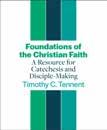

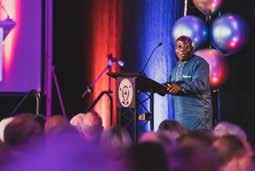
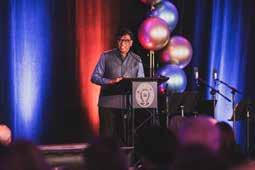
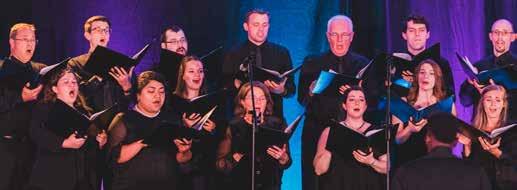

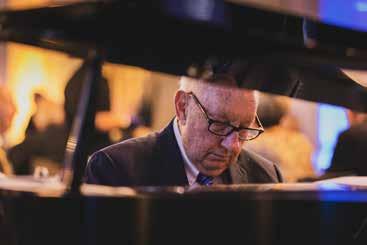

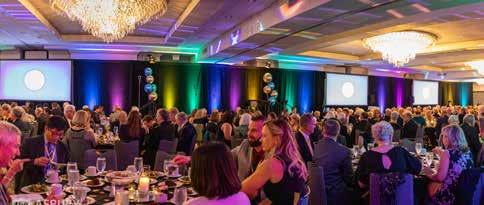






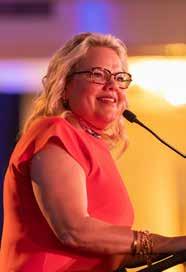
“The word says there's the power of life and death in a tongue. So, when we sing something, we're speaking those words into life. So, how important it is that what we speak is theologically sound. You can't have one without the other.”
-Ethan OltremariAssociate Pastor of Worship and Connectional Ministries at First United Methodist Church in Indianola, Miss. M.Div. Student, Asbury Seminary, 2023.

Visit asbury.to/voices to read Ethan's Story
